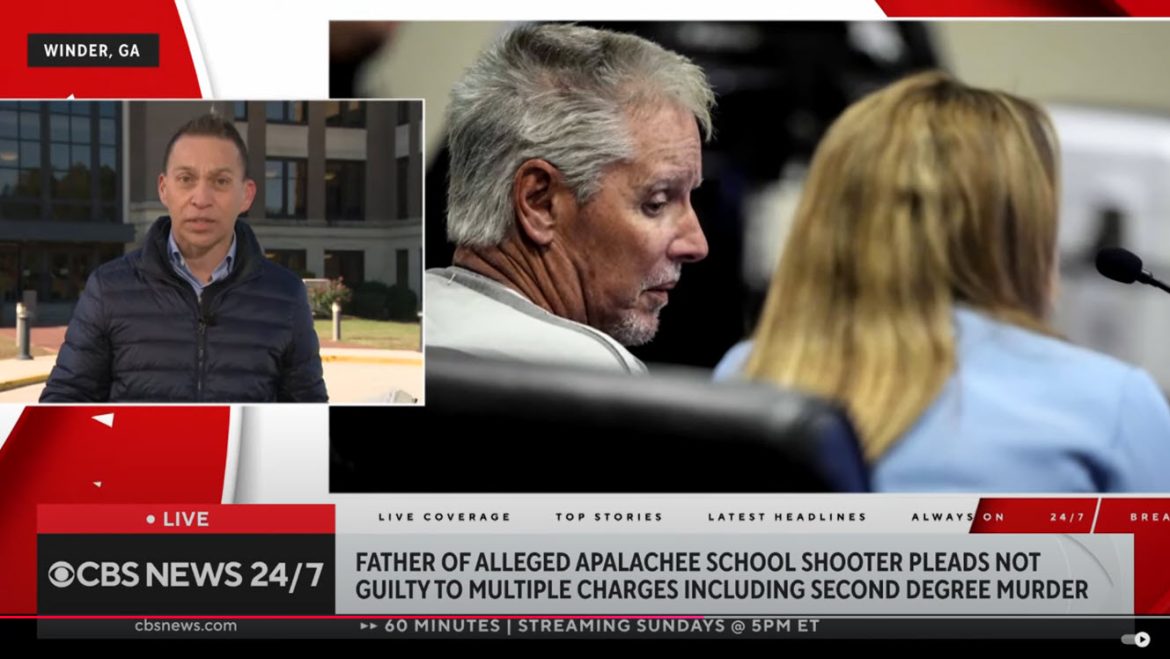The father of the alleged Georgia school shooter pleads not guilty to charges that he is partially responsible for his son’s actions in the tragic Apalachee High School shooting. Colin Gray faces 29 charges, including two counts of second-degree murder and two counts of involuntary manslaughter, stemming from accusations that he gave his son access to a firearm despite repeated warnings about the teen’s potential for violence.
The charges against Gray have intensified public scrutiny on the role of parental responsibility in gun-related crimes. Prosecutors argue that Gray failed to secure his firearm properly, enabling his 14-year-old son to carry out the deadly attack in September. The shooting claimed the lives of two students and two teachers and left nine others injured, sparking renewed debates over gun control, school safety, and mental health resources for minors.
Court documents reveal that prior to the attack, school officials and family acquaintances warned Gray about his son’s troubling behavior. These warnings included specific concerns that the teenager might harm others. Despite these alerts, Gray allegedly left his firearm unsecured, providing the teen with the means to commit the shooting.
Gray’s defense team argues that the charges unfairly shift the blame onto him for the actions of his son. They claim that while the circumstances are tragic, the primary responsibility lies with the shooter, not the parent. “Colin Gray is devastated by the events that transpired,” his attorney said in a statement. “But holding him criminally liable for his son’s independent actions sets a dangerous precedent.”
Meanwhile, the 14-year-old suspect, whose name is withheld due to his age, faces multiple charges, including first-degree murder and aggravated assault. He is being held in a juvenile detention center and is expected to be tried as an adult, according to recent court filings. Investigators are still piecing together the full details of the attack, but they report that the teen planned the shooting meticulously, targeting specific individuals.
The community of Winder, Georgia, where Apalachee High School is located, remains in mourning as families and friends of the victims demand accountability. “We need to ensure that this never happens again,” said one parent during a recent vigil held to honor the victims. Advocates are calling for stricter gun storage laws and more comprehensive measures to address warning signs of violent behavior among teens.
The case has reignited broader discussions nationwide about gun access and the responsibilities of gun owners. Some states have introduced legislation to impose stricter penalties on adults who fail to secure firearms that are subsequently used in crimes. Advocates for such measures argue that proper storage laws could prevent similar tragedies.
Gray’s next court hearing is set for early next year, while the trial date for his son remains pending. As the legal process unfolds, the case continues to fuel an ongoing debate about the intersection of gun rights, parental responsibility, and juvenile justice.



